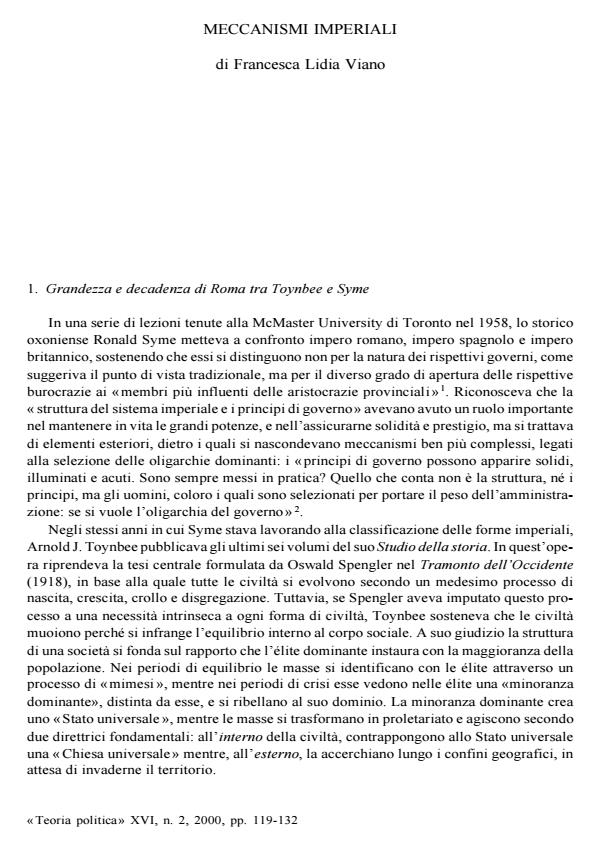Meccanismi imperiali
Journal title TEORIA POLITICA
Author/s Francesca Lidia Viano
Publishing Year 1 Issue 2000/2
Language Italian Pages 14 P. File size 41 KB
DOI
DOI is like a bar code for intellectual property: to have more infomation
click here
Below, you can see the article first page
If you want to buy this article in PDF format, you can do it, following the instructions to buy download credits

FrancoAngeli is member of Publishers International Linking Association, Inc (PILA), a not-for-profit association which run the CrossRef service enabling links to and from online scholarly content.
English moralists and political analysts had required the causes of the decadence of the Roman Empire in the moral and political corruption, also in order to warn the English governing classes against repeating the same errors. Going back to Tocquevillian suggestions, and drawing on themes spread by Gladstonian political propaganda, James Bryce introduces two important innovations: on one part, he transforms the Roman Empire into a positive political model, not associated with corruption, but appreciated for the firmness of its institutions, and on the other he maintains that the nature of the Roman Empire is determined not by the form of its government, but by the degree of accessibility of its administrative system to the provincial population and to the local customs. In this paper the author tries to demonstrate how Brycian themes have survived for a long time within the Oxonian tradition, and have penetrated into intellectual environments which were unrelated to the tradition of political studies, understood in the strict sense of the word. More particularly Viano tries to demonstrate how the ancient historian Ronald Syme went back to these themes towards the end of the 50s, in order to refute the Toynbian theory of the decline of the civilisations.
Francesca Lidia Viano, Meccanismi imperiali in "TEORIA POLITICA" 2/2000, pp , DOI: